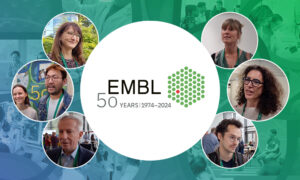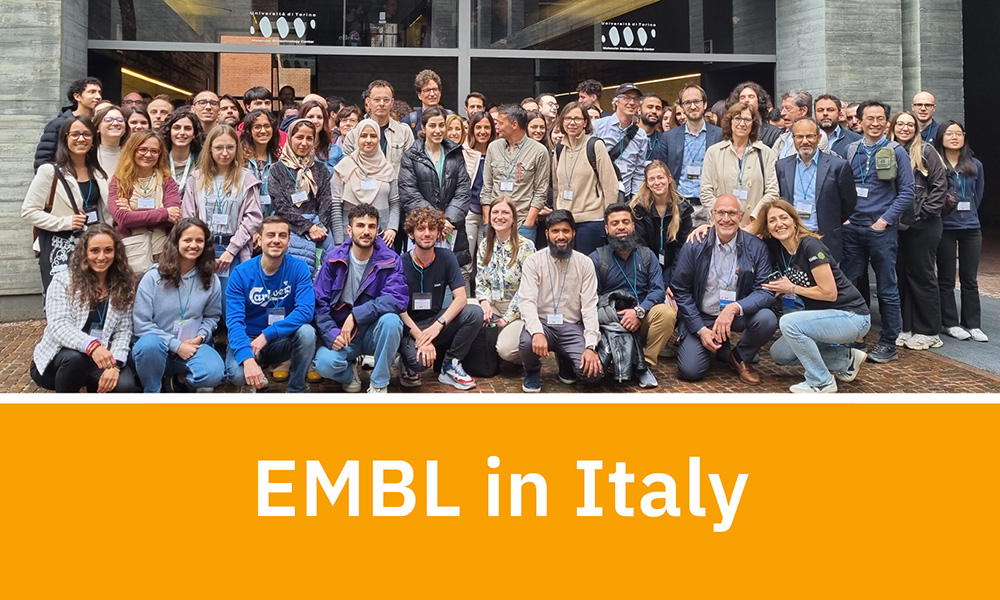
Read the latest Issue
The annual meeting organised by Italian EMBL alumni was held in Turin on 18-19 May, hosted by the University of Turin and the University of Piemonte Orientale (UPO)

Over 200 participants attended the EMBL in Italy event in Turin, focusing on the indispensable role of curiosity-driven life science research. Scientists from EMBL and the Italian life science community presented their latest work in basic and applied research.
The event was a great opportunity to establish new connections between EMBL and scientists from several Italian universities and to consolidate ongoing collaborations.
Graziano Martello, from the University of Padova, presented the results of a collaboration with the Hackett group at EMBL Rome, findings that were just published in Nature Cell Biology. Mariangela Morlando, Professor at the University of Perugia, presented her studies on Amyotrophic Lateral Sclerosis (ALS), for which she collaborated with the Gene Editing and Embryology Facility at EMBL Rome.
“EMBL in Italy is always my favorite meeting of the year,” said Head of EMBL Rome Cornelius Gross. “I always come away thinking a little differently about science – thanks to the high level of truly curiosity-driven research. Life sciences are booming in Turin, with lots of young group leaders and start ups!”
The common thread connecting the presentations across the three sessions was the importance of fundamental research for scientific advancement, which often leads to unexpected applications. That was the case for Laura Cancedda, group leader at the Italian Institute of Technology (IIT), who described her journey from basic to applied research that led to a clinical trial for a compound that shows promising effects in improving the cognitive defects in individuals affected by Down syndrome or autism.
“I really appreciated the high quality of research performed by talented young scientists in Italy,” said Salvatore Oliviero, Professor at Turin University. “These events bring together scientists from different backgrounds and strengthen the ties between Italy’s new generation of scientists and EMBL.”
In the keynote lecture, Emilio Hirsch, Professor at the University of Turin and Director of the Molecular Biotechnology Center – where the event took place – presented an overview of current knowledge on the molecular basis of the aging process.
In the closing panel, representatives from different Italian funding bodies discussed their mission and priorities to support basic and translational research and shared suggestions on how to be successful in funding applications. In line with the theme of the meeting, the discussion also focused on how we can make policymakers aware of how impactful basic research has been.
“Curiosity-driven, basic, translational: what really counts is the knowledge achieved. This came out very clearly both from the excellent talks and from the round table discussion,” said Valeria Poli, Professor at Turin University. “Great talks, vibrant enthusiasm, young researchers and students: the best ingredients for networking and a great way of making EMBL known to all levels of the Italian scientific community. EMBL in Italy confirms itself as a unique scientific fertiliser.”
Looking for past print editions of EMBLetc.? Browse our archive, going back 20 years.
EMBLetc. archive